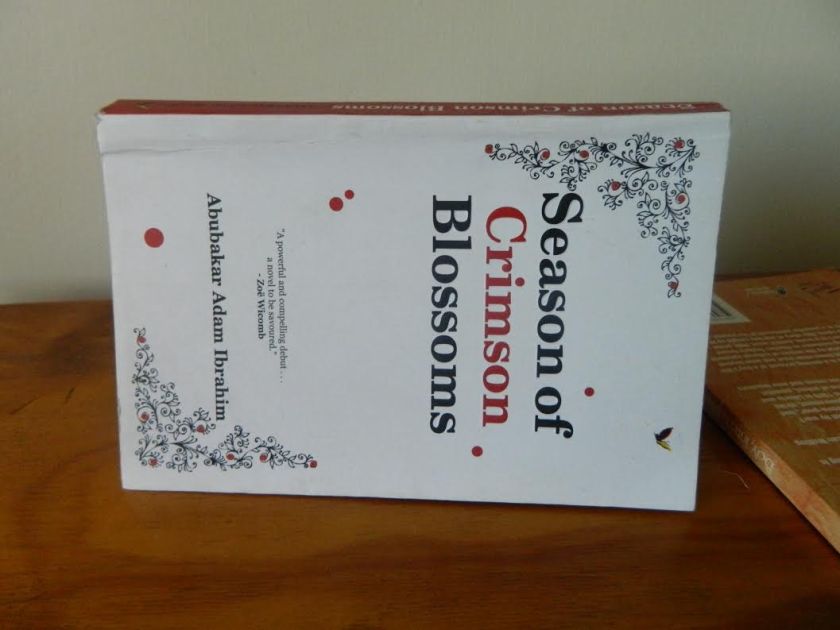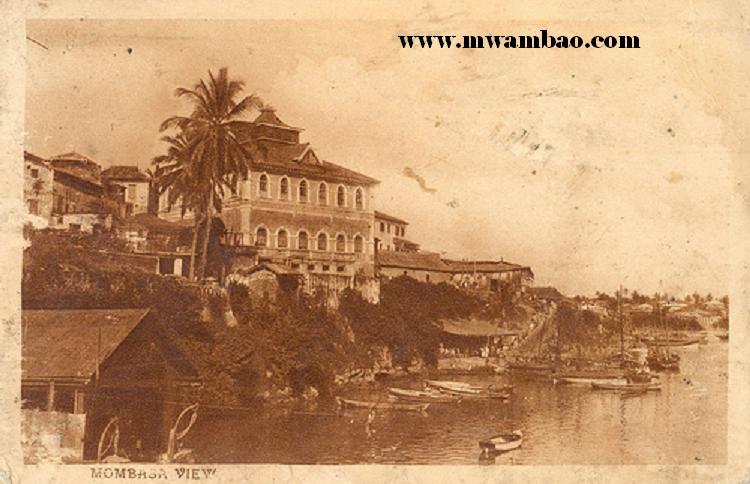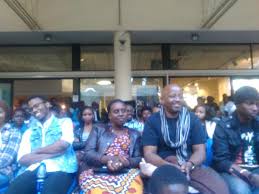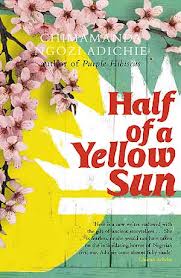First published in the East African Newspaper.
Senegalese author Mariama Ba in her much acclaimed novel So Long a
Letter shines light on the stifled lives of women she perceived
growing up in Senegal.
In the book, Ba highlights the helplessness, sorrow and resignation of
the protagonist, Ramatoulaye. We are taken into the intricacies of
Ramatoulaye’s life when, after the death of her husband, she writes to
her best friend, reminiscing about the past and also speaking about
her present state as a widow in a very conservative and patriarchal
Muslim society. Through this book, Ba discloses for the first time,culture and its stifling effect on its women.
I have just finished reading a book I dare term the sequel to Ba’s. It
is the debut novel of Nigeria writer Abubakar Adam Ibrahim. Seasons
of Crimson Blossoms tells the story of Hajiya Binta Zubairu, a 55
year old widow in conservative northern Nigeria who decides to,
against conventional wisdom, fall in love with a younger man in his
20’s. Abubakar rebirths Ramatoulaye. He also modernizes her and
boldens her by making her more in charge of her own life choices.
It was Leo Tolstoy who, at the beginning of his controversial classic
Anna Karenina, declared that every unhappy family is unhappy its own
way. As Season of Crimson Blossoms begins, the widow Hajiya Binta
Zubairu’s family is unhappy in its own way. Having lost her husband to
a mob of religious zealots in Jos and her first son Yaro at the hands
of police, Binta is deeply unhappy. She lives with her sister’s child
Fa’iza who is also haunted by a violent death she witnessed.
Binta , whose story is set against the backdrop of the volatile
north, leads the ordinary, quiet life of a faithful Muslim housewife;
performing her ablutions, saying her Subhi prayers, reading the
Qur’an, attending Madrasa and sewing. Besides this, the only other
thing she seems to do is steep herself in regret and nostalgia,
thinking about how she could have better loved her deceased first son
whom tradition forbade from showing affection.
All this changes one afternoon when Binta returns from Madrasa to find
a youthful burglar named Hassan Reza Babale in her house. He cames to
steal her property but leaves instead with her heart. She warms up to
his touch, the first male touch since her husband died a decade
earlier. A pious person, she is of course appalled when the masculine
touch arouses deeply buried sexual feelings and is quick to blame
Shaytan for sowing impious thoughts in her mind. Reza manages to
successfully awaken her long abandoned womanhood.
We sense that this encounter, grimy as it is, is the turning point of
Binta’s life. The author writes:
‘He took her things and left, having sown in her the seed of her
awakening that would eventually sprout into a corpse flower, the
stench of which would resonate far beyond her imagining …’
Abubakar masterfully curves out the tale from this point, putting into
it just the right amount of suspense to whet our appetite for more and
then breaking our hearts with the harsh, judgmental, self-righteous
reaction of, not only her closest family and friends but also the
larger society, a people that know not how to forgive and forget.
That he chose to set his novel in Northern Nigeria, a region largely
ignored by many Nigerian writers is plausible. It shows that Abubakar
is unafraid of loving his homeland, to which he dedicates the book.
And he writes with a true patriotsm, a love for his country that’s not
blind. He dares to steep the prose in Nigeria’s recent political
history, thus affirming Achebe’s long standing argument that a writer
must engage in the politics of his day.
Abubakar writes splendidly, drawing pictures with unforgettable
phrases like this:
‘She dreamt in sepia. Like rust-tainted water running over the
snapshots of her memory, submerging her dreams in a stream of reddish
brown’
The choreography of his language is brilliant and the metaphors are
breathtaking. The prose begets poetry and the phrases are so perfect
he must have bled over. His sentences have poignancy and passion.
I liked too how he handled the female protagonist in the book. In the
liberal spirit of the 21st century, he lets Binta choose her lover
without caring that he is younger than most of her children. As a
girl, she was forced to marry a stranger thrust upon her by a
dictatorial father. As a grown woman, Binta lets sexual attraction be
the guiding light of her new relationship; a bond in which she gets as
much as she gives, a liaison in which her body is no longer a source
of shame but of pleasure to herself and the man she chooses to give
herself to.
Abubakar doesn’t paint his story with broad strokes, he pays attention
to detail. His characters are sensitive and their domestic incidences
plausible. The conversations too are delightfully realistic which
shows that the writer is an attentive observer of his surroundings. I
found my emotions enmeshed into those of the characters once it
occurred to me that beyond the boubous, hijabs and perfect makeup, lay
mothers and sisters who yearn for love and understanding even as
they morph from victims to creators of their own circumstances.
Abubakar has gone a step further. He has redeemed the modern writer.
Through the seriousness and thoughtfulness he accords his prose, he
has proven that the modern writer, despite endless chatter on social
media platforms, is still capable of emerging as a deep, scholarly
thinker. Abubakar has undoubtedly, like Achebe said of Adichie, also
come to us almost fully made.






